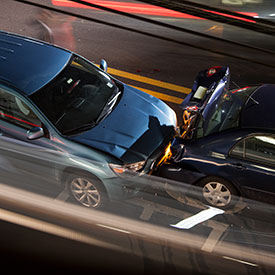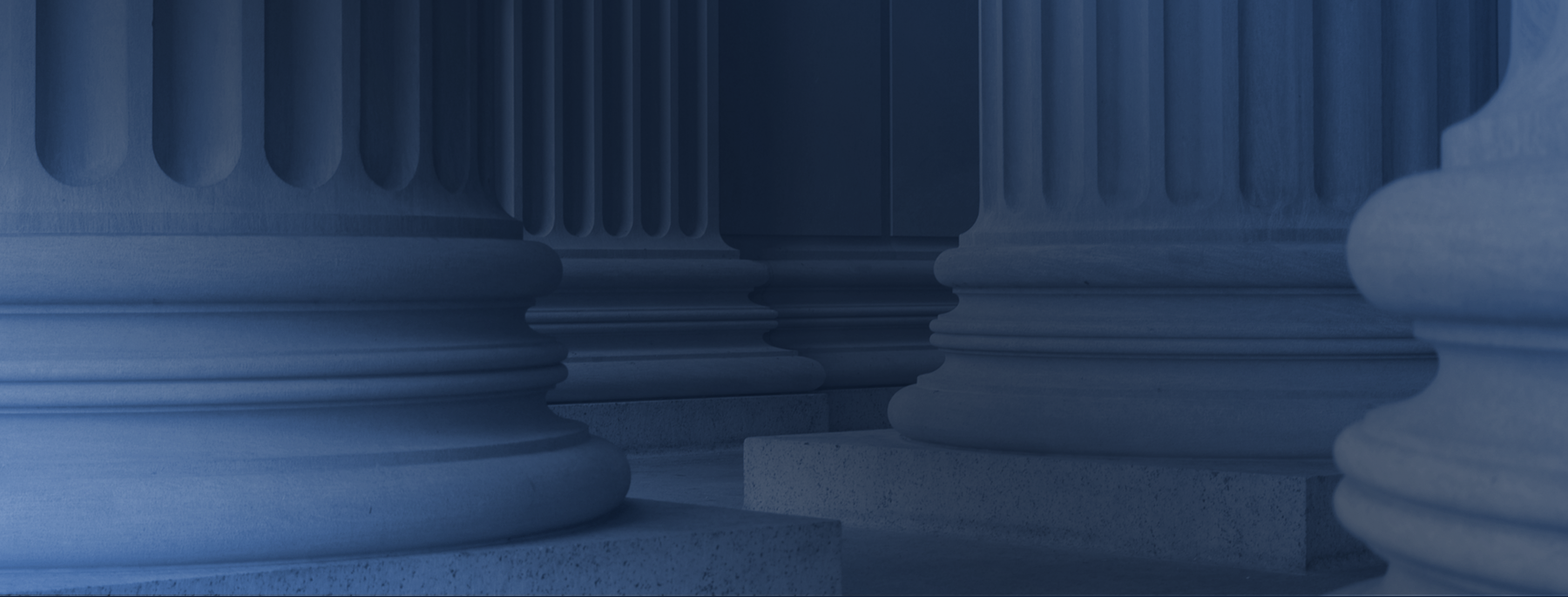Determining Fault in a Car Accident
- September 23, 2023 |
- Car Accidents

After you have been involved in a car accident, one of the most delicate and trickiest issues is determining who is at fault for the crash. It can be overwhelming to suffer severe injuries, believing that the other driver is at fault, but not knowing how to prove it.
If your car accident occurred in Massachusetts, a legal advocate familiar with state law and local rules will be critical in your case. Before discussing how fault is determined, you will need to understand how fault is defined under the law, and whether you will even need to prove it.
What Is Fault?
Under the law, a party may be wholly at fault or partially at fault. Therefore, it is important to understand that, when looking at a car accident, blame can be shared.
Fault is assigned to the “negligent” driver. Negligence is failing to use the standard of care that a reasonable person would have used in a similar situation. Generally, three things are needed to prove negligence:
(1) The driver had a responsibility or duty to drive safely;
(2) the driver breached that duty;
(3) the breach of the duty caused harm.
In a car accident, negligent driving can be seen when someone fails to obey traffic signs or laws, speeds, or drives impaired. However, remember that more than one driver can be negligent in an accident.
Massachusetts Fault Laws
Massachusetts Is A No-Fault State
Now that you understand what “fault” is, you must realize that sometimes assigning fault is not necessary. This can be true especially in minor accidents. In Massachusetts, specific laws guide how fault is decided in a car accident. Consulting with a Springfield car accident lawyer can be beneficial in understanding how and when each victim can receive compensation, and from whom.
With However, this does not mean that fault is not important in Massachusetts. Fault becomes important to your case in determining whether a recovery from the other driver—instead of just your insurance company—is available. Fault becomes a question when you reach the limits of your no-fault policy or you have damages that are not covered by the terms of the policy. You could potentially bring a claim against the other driver to hold them financially responsible. Whether you can hold the other driver responsible will depend on the facts and circumstances of your car accident. In order to maximize your compensation, you will want to seek advice from an experienced car accident lawyer. At Cava Law Firm, we would be honored to represent you and help you navigate the stressful aftermath of your accident. Call us today to find out why for us Winning is NO Accident: (413) 737-3430 or (413) 781-CAVA (2282). If you are able to seek compensation from the other driver, there are certain circumstances under which the driver would presumed to be at fault. Under Massachusetts law, the other party is presumed at fault in an accident in 31 different scenarios, including: It is important to note that if you are the driver presumed to be at fault in one of the listed situations, the presumption can be rebutted. Additionally, there are other requirements under the statute for the presumption, so it is crucial to seek advice from a legal advocate if you have been involved in a car crash. If there is no fault presumed, or if you are rebutting fault, there are several aspects to consider. Accidents occur quickly; a driver may not have been paying attention and thus cannot provide details; and memories fade. Therefore, you will need other clues to piece together who is at fault and how fault should be shared. Each of the following provides input into who takes the blame. Driver’s actions or inactions The driver’s behavior is an important factor in determining fault. Whether a driver was intoxicated, distracted, or speeding will be significant. Any other reckless decisions, high-risk behavior, or negligent inactions will go toward determining who is at fault and to what extent each party is responsible for the accident. Videos and photographs Videos and photos will be used, if available. If your accident occurred in front of a business that has video surveillance, the footage could be requested and reviewed to determine fault. Any photos and videos will provide useful details regarding the context of the accident. The positioning of the vehicles shown in videos and photos is an important detail in determining fault. For example, if you were struck in the middle of an intersection, and the other vehicle hit your passenger side door, photos showing this could prove you are not to blame. The scene of your accident as depicted in the footage can also provide valuable indications for who is at fault. There may be evidence of skid marks. Their length and direction can indicate how fast and exactly how the vehicle traveled before impact. There may also be a blind corner, hill, or other obstruction shown at the scene. This is yet another reason photographs are so important. Vehicle damage The angle, extent, and location of your vehicle’s damage can also be used to assess fault. If your vehicle is damaged at the rear while you were stopped at a red light, it is more likely that you were rear-ended and far less likely that you reversed into something. The extent of damage can also be used to estimate how quickly a vehicle was traveling. An airbag will deploy only in certain conditions; if it was not activated, it can be assumed the conditions were not present at the time of the accident. Witness testimony If there are witnesses, their statements will factor into determining fault. They provide unbiased third-party perspectives that will help the insurance adjusters and your attorney investigate. The drivers and passengers are important witnesses to the accident whose statements will also be used to determine fault. This is why it is essential not to apologize or admit to anything. Whatever you say can be used against you. Police reports Police officers are frequently involved in determining fault, especially if a crime like drunk driving was involved. The police will investigate the circumstances of your car collision, including doing their own interviews with witnesses and the drivers, and analyzing the scene. They will then create a police report. The report will sometimes assign blame to a driver and will usually assess whether a driver broke the law. Retained professionals Accident reconstruction experts may be used if you work with an experienced law firm. An expert can do some fieldwork to complete an investigation, including visiting the site of the accident. They will also review the evidence gathered, such as the photographs and police reports. Then, using their knowledge of science, mechanics, and engineering, an expert can help determine the cause of the accident and prove fault. Who ultimately determines fault in a car accident will depend on where you are in the claims process. Many parties will be interested in getting to the bottom of who caused your accident – businesses, the police and state, multimillion-dollar insurance companies, and the drivers and their families. They all have a stake, and for varying reasons. The Commonwealth may be interested in pursuing any criminal charges. Each insurance company will want to minimize the amount it pays out or up your rates to get more money from you. For this reason, they may accuse you of being at fault for an accident you did not cause, just to avoid paying the damages they owe. Because so many entities are involved in determining fault, it is important to rely on sound legal guidance in navigating the process. Cava Law Firm has risen to this occasion countless times and is equipped to provide you with quality representation. Call us today to schedule a consultation with our car accident lawyer: (413) 737-3430 or (413) 781-CAVA (2282). Insurance adjusters will usually conduct their own investigations to determine whether a claim should be paid. Their determination will frequently be based on police reports; witness, driver, and passenger statements; photos; any security camera footage; and car repair estimates. Arbitrators could be involved if the insurance companies are unable to agree on how to assign fault. If your policy requires it, your claim may be arbitrated. An arbitrator hears and considers each side of the case, acts as a decision-maker, and renders a final decision. The decision will usually determine who is at fault and to what degree. In some rare cases, a car accident case ends up in court and makes it to trial. The judge or jury considers most of the evidence, depending on what the law says is admissible, then provides the final decision on who is at fault. Determining fault in a car accident can be quite complicated. Obtaining a legal representative may be the key to ensuring you are protected from false accusations. Regardless of whether you are facing an insurance adjuster, arbitrator, or court decision, you need someone on your side to represent your best interests. Call Cava Law Firm at (413) 737-3430 or (413) 781-CAVA (2282) to learn how we can help.
Massachusetts Laws for Determining Fault
Other Factors That Help Determine Fault
Who Determines Fault
The Insurance Company
Arbitrators
Judge or Jury



